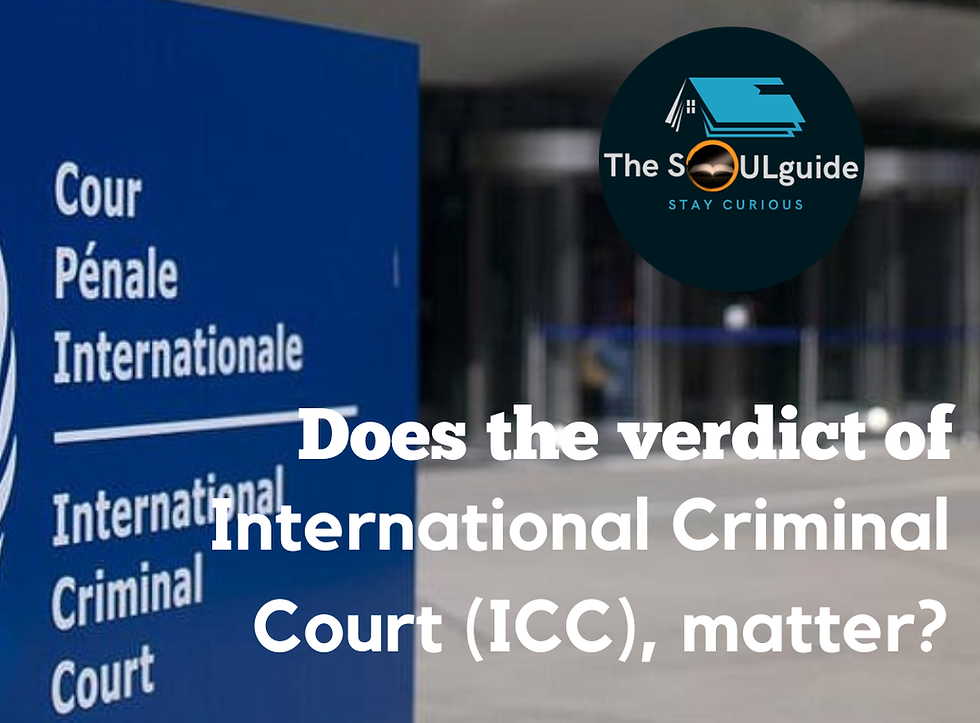Things you do not know about Uniform Civil Code (UCC). Crisp notes and facts.
- TheSoulGuide

- Jul 9, 2023
- 3 min read
What is UCC?
UCC, provide for one law for the entire country, applicable to all religious communities in their personal matters such as marriage, divorce, inheritance, adoption etc.
Is India currently not Uniform with respect to civil laws?
Indian laws do follow a uniform code in most civil matters such as Indian Contract Act 1872, Civil Procedure Code, Transfer of Property Act 1882, Partnership Act 1932, Evidence Act, 1872 etc. However these laws are limited to certain extent basically there are personal codifications that religious boards force upon the people which aren't rationale in todays world.

Why UCC wasn't brought into force after independence?
UCC was extensively debated in the constituent Assembly but could not be brought into force due to heavy opposition to it. Finally it was decided to be made part of the DPSP that is the directive principles of state policy which means it is not enforceable in court of law but obligates the government to bring it into effect.
Article 44, part of DPSP.
The State shall endeavour to secure the citizen a Uniform Civil Code throughout the territory of India.
Who supported UCC in Constituent Assembly?
Almost the entire Congress, including then Prime Minister Jawaharlal Nehru, supported the UCC.
The Uniform Civil Code first got support from women members. There were 15 women members in the Constituent Assembly. Hansa Mehta was among these 15, and she lobbied for a UCC as a member of the Fundamental Rights Sub-Committee.
Apart from them, Rajkumari Amrit Kaur, Dr Bhimrao Ambedkar, Meenu Masani, Kanhaiyalal Maniklal Munshi, Alladi Krishnaswami Iyer vociferously supported the implementation of a UCC and argued strongly in its favour.
The UCC that is applicable to Goa.
Goa is the only Indian state to have a UCC in the form of common family law. The historical law known as the Portuguese Civil Code, remains in force even today was introduced in the 19th century in Goa and wasn’t replaced after its liberation.
The Uniform Civil Code in Goa allows equal division of income and property between husband and wife and also between children (regardless of gender).
Every birth, marriage and death have to be compulsorily registered. For divorce, there are several provisions. However to deep dive this law also is a patriarchal one and was brought to keep the men living under Portuguese rule happy in India.
Way forward
UCC is the need of the hour and had received lot of support from academic world in India. However the All India Muslim Personal Law Board, Shiromani Gurudwara Prabandhak Committee, social groups in Nagaland and some other groups have expressed concern for now, also the diversity in Chrisitian, Muslim laws is a challenge.
The law commission seeked recommendations for the citizens but only the final draft coming up in this monsoon session will clear all the doubts on what will it be actually.
Wait and watch and don't believe in whats app forwards as majority of them are Fake.
Views of Dr Bhimrao Ambedkar (Chairman of drafting Committee of the constitution of India)
Ambedkar ji said, "all that the State is claiming in this matter is a power to legislate. There is no obligation upon the State to do away with personal laws. It is only giving a power. Therefore, no one need be apprehensive that if the State has the power, the State will immediately proceed to execute or enforce that power in a manner that may be found to be objectionable by the Muslims or Christians or any other community in India".
Ambedkar also referred to changes in the Shariat law that made it easier for women to seek divorce. He also emphasised that it is “impracticable” for an advanced society to rule out any role for the State in personal law, “for, even the members who belong to a particular community may desire their personal law to be changed.




Comments